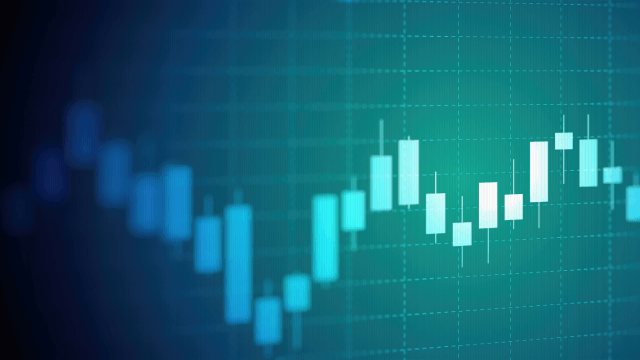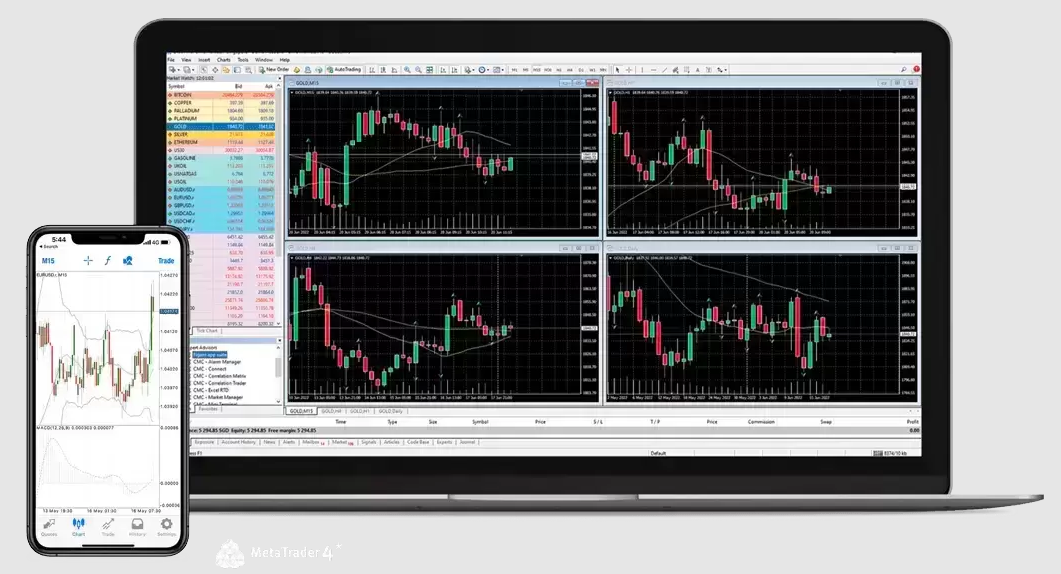How To Deal With Fear And Greed In Forex Trading

Anyone who wants to build a successful trading career in the forex market always hears one common piece of advice. “Keep your emotions in check and always make rational decisions”. This is easier said than done as a vast majority of traders are still struggling to manage their emotions and remain logical while making trading decisions. Our emotions are more powerful than we think and they can not only control our thoughts but even influence our actions even before we realise what we are doing. Two of the most common emotions that you experience throughout your trading journey are fear and greed.
Learning to deal with them is essential for survival and if you are someone dealing with failures, then gaining emotional control can be helpful in reviving your career as a forex trader. Hence, this blog can be a helpful guide for all types of traders.
Why Trading Gives Rise To Fear & Greed?
Knowing the root cause of something is important to deal with it in the best possible manner and you need to understand why trading gives rise to fear and greed in the first place. Fear is always an aversion to any negative experience which can be dealing with a loss in the case of a trader. The survival instinct in our brain tries to keep us safe from any potential danger and in the modern age, a possible financial loss is perceived as a threat. In forex trading, losses are quite common and thus having a healthy amount of fear is actually essential to manage the risk well. Our brain is just trying to warn us about a loss so that we can take some steps to avoid it.
For instance, the amount of leverage you use for a trade determines the amount of profits you can earn if you win the trade but it also amplifies the risk of loss. The fear that excess leverage can lead to huge losses will stop you from taking excess leverage and it is essential to keep trading safely. There are tools like leverage and margin calculators to find out the optimal amount of leverage as well as the account balance that needs to be maintained to meet the margin requirement. For margin calculation, you just need to enter the details like trade size, leverage and currency pair being traded along with account base currency.
Now the psychology of greed is quite the opposite of fear as we tend to forget about the potential losses and get fixated on the possibility of profits. When we get an opportunity to make a profit, we feel excited and the thought of a gain makes us wish for more. When this desire for profit is within our capacity and potential, we can just label it as a trader being ambitious and it helps in organic growth. But when someone sets unrealistic goals and expects to make a lot more money than what they are actually capable of, it is unreasonable and this is referred to as greed. Greed can lead to risk-taking behaviours without considering the consequences.
How Fear & Greed Affect Trading?
Talking about the impact of fear and greed, you need to understand that fear is not just about losing money but it can also be about losing an opportunity. This type of fear is what we refer to as FOMO which is the fear of missing out and this can make a trader jump into all trading opportunities they come across, as they are afraid of missing a chance to make a profit. Thus, fear can either be about encountering a loss or losing the profits that you would have earned from a trade. The fear of losses limits the potential of a trader as they may let go of good trading opportunities by not taking enough risk. On the other hand, FOMO can lead to overtrading just like how greed does and traders may keep monitoring the charts all day without any rest.
Whether it is fear or greed, both can lead to mental and physical exhaustion while also affecting our ability to think properly. This can also result in impulsive trading where you deviate from your original plan and do things in the heat of the moment. Any emotion that you feel while placing a trade has the power to interrupt the thinking process. For instance, when you are fearful of the outcome, you tend to overthink and over-analyse the situation. This kind of analysis paralysis can make you indecisive and confused. Timing is crucial in the trading process and if you are not able to enter a trade at the right time, you will not get the advantage of a favourable entry point.
When it comes to deciding the entry and exit points for a trade, you need to consider the pip value and the number of pips that you plan to catch in a trade. For this, you can try a pip calculator that gives precise data about the monetary value of pips in your account base currency. When you can shift your focus from the fear of entering a trade to finding the best price level for entry with pip calculations, you will be able to manage the risk in a better way and this will automatically reduce your fear.
How To Overcome These Emotions?
Now that you know about the negative impact of fear and greed on your trading performance, I will share some simple yet powerful tips that you can follow to overcome these emotions during the trading process.
- Keep Learning and spend Time in the Demo Account
Do you know that one major cause behind emotional trading is the lack of knowledge and skills? Because you are more likely to rely on emotions when you don’t have enough expertise or experience to make rational decisions. Those who rush the learning process will surely be more fearful of the losses as they are not good at risk management. It can also lead to greed if they are overconfident. However not having the right amount of confidence will make you anxious while placing trades. All of these issues can be solved through continuous learning and demo account trading which is essential for gaining practical knowledge.
- Follow a Disciplined Approach
Another reason that makes some traders more prone to falling into the trap of their emotions is that they fail to build trading discipline. You may have a solid trading plan and some personal trading tools. But you keep breaking these rules and deviate from your plan under the influence of emotions. Even experienced traders feel fear and greed while trading, but they are disciplined enough to not give in to these urges and stick to their plans. Discipline is not something that you can build in one day but you need to make consistent efforts to follow the rules that you have set for yourself and that will help you in controlling these emotions.
- Using Risk Management Tools
One thing that many traders forget about while being overpowered by fear and greed is risk management. Those who are paying attention to risk management will find it easier to deal with these emotions as they know that they are only taking calculated risks and that the potential profit and losses are going to be within their control. You can use tools like trading calculators by clicking here to estimate the amount of profit that you can earn from a trade and then choose the trade size, leverage and price points based on your risk/reward ratio and risk appetite. You should also be placing a stop loss and take profit order for every trade to avoid early exits due to fear or letting the trade run for too long due to greed.
- Plan Your Trade in a Journal
Usually trading journals are used for recording the trades after you get the result but when you are unable to trade well due to fear or greed, you need to plan your trades before executing them. You need to write the logic behind the trading decision and see if it is really valid or just based on the emotions that you feel at the moment. This way, you can avoid making emotional decisions and you will get habitual to thinking rationally while finding trading opportunities. This will also stop you from overtrading and risking too much as you can check if you are following the trading plan while planning the trades in advance. So, make sure that your risk is not more than 2% of trading capital and double-check your analysis.
- Practice Mindfulness
The last tip for dealing with fear and greed is training your mind to let these emotions pass and stay focused on executing your strategy with perfection. For this, you need to practise mindfulness or try meditation as these stress-management techniques give us better control over our emotions and also improve mental health. Facing your fear is the only way to move forward as a trader and mindfulness surely helps in dealing with irrational fear and anxiety. Meditation and mindfulness also help you in becoming more self-aware and that will help in dealing with negative emotions like greed.
Summary
To summarise, fear and greed can surely interrupt the trading process and it often leads to poor trading performance when the trader is unable to think and act logically. Thus, you need to try your best to build trading discipline and indulge in continuous learning. Lastly, you need to develop patience as perseverance is the key to trading success.





